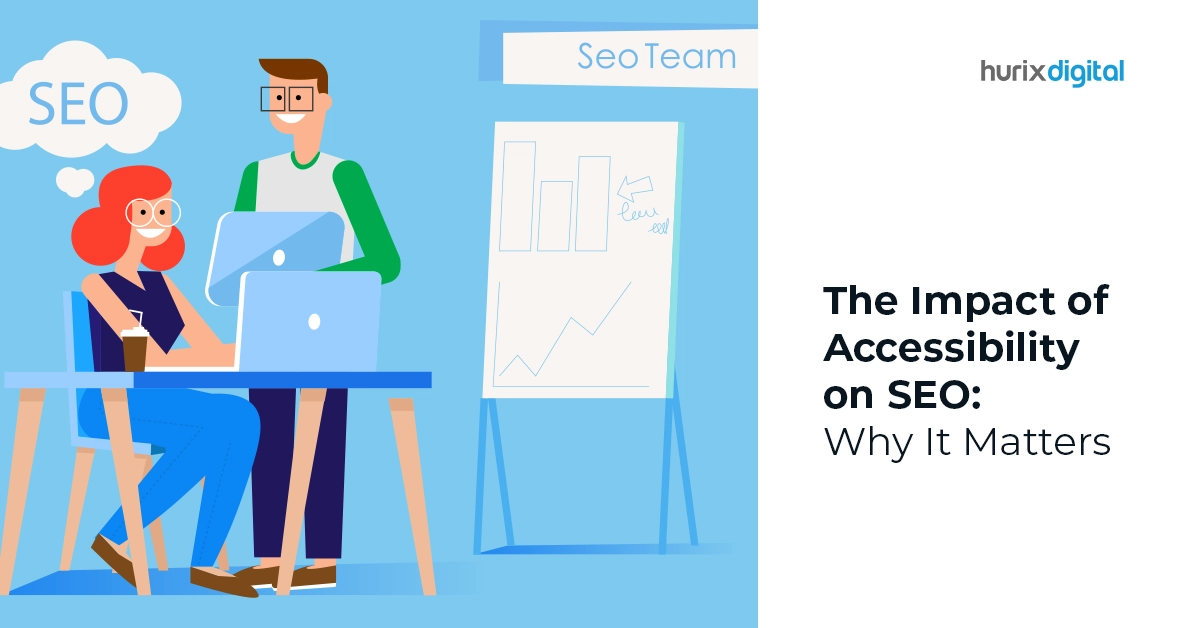The Impact of Accessibility on SEO: Why It Matters?
Summary
Discover the symbiotic relationship between SEO and web accessibility, exploring its profound impact on website development, user experience, and legal compliance. Learn how prioritizing accessibility can lead to increased organic traffic, lower bounce rates, and enhanced SEO performance.
In today’s digital landscape, ensuring that your website is accessible to everyone, regardless of their abilities, is not only the right thing to do but also a smart business strategy. By focusing on web accessibility, you can not only improve the user experience for all your visitors but also reap significant benefits in terms of search engine optimization (SEO). In this blog post, we’ll explore the impact of accessibility on SEO and why it matters for the success of your online presence.
Table of Contents:
- Understanding SEO Accessibility
- The Impact on Website Development
- Why Accessibility Matters for SEO?
- Implementing Accessibility Best Practices
- Conclusion
Understanding SEO Accessibility
SEO Accessibility refers to the practice of optimizing your website’s content, structure, and design to ensure that it is easily discoverable, understandable, and usable by all users, including those with disabilities. This includes individuals with visual, auditory, cognitive, or motor impairments who may use assistive technologies such as screen readers, magnifiers, or voice recognition software to interact with the web.
The Impact on Website Development
Integrating accessibility practices into website development yields multifaceted benefits. Beyond fostering inclusivity, it streamlines the design and content creation process, leading to a more efficient and scalable website. Adhering to WCAG guidelines from the outset ensures that websites are inherently optimized for search engines, laying a robust foundation for sustainable SEO success.
Also Read: Incorporating Accessible Content: 7 Best Practices for Web Writers
Why Accessibility Matters for SEO?
Improving web accessibility has a direct impact on website development and user experience, which in turn can positively influence your search engine rankings. Here are some of the key reasons why accessibility matters for SEO:
1. Enhanced User Experience
When your website is accessible, it becomes easier for all users to navigate, understand, and engage with your content. This leads to a better overall user experience, which is a crucial factor in SEO. Search engines prioritize websites that provide a positive and seamless experience for their users, as it indicates a high-quality and relevant website.
2. Increased Organic Traffic
By making your website accessible, you open it up to a wider audience, including users who may have previously struggled to access your content due to accessibility barriers. This increased visibility can lead to more organic traffic from search engines, as your website becomes more discoverable and appealing to a larger audience.
3. Lower Bounce Rates
When users encounter accessibility issues on a website, they are more likely to leave quickly without engaging with the content. This results in higher bounce rates, which can negatively impact your search rankings. By improving website accessibility, you can reduce these bounce rates and keep users engaged for longer, signaling to search engines that your website provides valuable and relevant content.
4. Legal Implications
In many countries, there are laws and regulations in place that require websites to be accessible to individuals with disabilities. Failure to comply with these accessibility practices can result in legal action and penalties. By prioritizing accessibility, you not only avoid potential legal issues but also demonstrate your commitment to inclusivity and social responsibility, which can positively impact your brand reputation and credibility.
Implementing Accessibility Best Practices
To ensure that your website is accessible and optimized for search engines, it’s essential to follow industry-standard WCAG guidelines. Here are some key accessibility best practices to consider:
- Provide alternative text for images and other non-text content to ensure that screen readers can describe the content accurately.
- Use descriptive and concise headings and subheadings to structure your content and make it easier to navigate.
- Ensure that your website is keyboard-accessible and can be navigated using only a keyboard.
- Provide captions or transcripts for audio and video content to accommodate users with hearing impairments.
- Use clear and concise language, and avoid complex terminology or jargon that may be difficult to understand.
- Ensure that your website has sufficient color contrast and can be easily read by users with visual impairments.
- Test your website for accessibility using automated tools and manual testing methods to identify and address any issues.
Also Read: Inclusive Design: How to Make Your Digital Content Accessible to All?
Conclusion
In conclusion, SEO accessibility is a crucial aspect of modern website development and design. By prioritizing web accessibility and following best practices, you can not only create a more inclusive and user-friendly experience for all visitors but also reap significant benefits in terms of search engine optimization. From increased organic traffic and lower bounce rates to enhanced user experience and legal compliance, the impact of accessibility on SEO is undeniable.
If you’re looking to optimize your website for both accessibility and search engine visibility, consider partnering with Hurix Digital. Our team of experts can help you improve website accessibility while implementing effective SEO strategies to boost your online presence and attract your target audience.

Gokulnath B is the Associate Vice President – Editorial Services. He is PMP, CSM, and CPACC certified and has 20+ years of experience in Project Management, Delivery Management, and managing the Offshore Development Centre (ODC).









